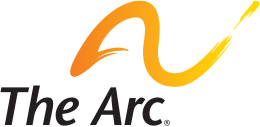ISSUE
Without strong advocacy at all levels, people with intellectual and/or developmental disabilities may not have access to needed supports as well as opportunities to exercise inherent civil and human rights. Additionally, strong advocacy may be required to prevent and/or address abuse, neglect, and exploitation that people with intellectual and/or developmental disabilities may experience. Persons with intellectual and/or developmental disabilities may need the support of advocates to become effective self-advocates.
POSITION
Advocacy is vital in improving and sustaining quality of life for persons with intellectual and/or developmental disabilities. To be effective, advocacy must take place at both the individual and system levels. Advocacy can be aimed at public officials, support systems, and the general public.
Individuals
Advocates, including self-advocates, should be trained and knowledgeable about the rights and dignity of children and adults as set forth in the position statements of The Arc.
Advocates must communicate effectively with individuals they assist, encouraging them to express and act on their thoughts, choices, and feelings about issues and proposed solutions to problems. The advocate and the individual must be able to understand each other. The advocate should exercise great care to ensure that the person with intellectual and/or developmental disabilities fully understands the benefits and risks of any decision. When making decisions, individuals should be encouraged to consult with the important people in their lives.
Advocates have an ethical obligation to represent the desires and needs of the person they represent, regardless of their own personal opinions on matters under consideration.
Self-advocates should:
- Know about, understand, and assert their rights;
- Obtain support to be effective self-advocates;
- Practice self-determination and advocacy;
- Learn and develop the skills necessary to advocate for one’s self;
- Practice self-protection;
- Obtain needed services; and
- Fully participate in their community.
In certain circumstances, parents, other legal representatives or other supporters may need to be involved in making decisions with and on behalf of the individual. At such times, advocates must represent the interests of the individual. Advocates must be careful to recognize and set aside their own personal desires or points of view that may conflict with those of the individual for whom they are advocating. If there is a conflict of interest, the advocate should withdraw from the decision-making.
Systems
Systems change advocacy can provide tremendous benefit for people with intellectual and/or developmental disabilities.
The goal of systems advocacy is to enhance public awareness of the rights, strengths, needs, and interests of people with intellectual and/or developmental disabilities and influence law and policy to improve public and private systems of support and services. Family members and self-advocates should play a meaningful role in systems change.
Agencies providing supports to individuals should also advocate for system change that will improve the quality of life for all individuals, whether supported by the agency or not.
Individuals should have access to protection and advocacy systems and other entities mandated by state and federal laws that:
- Have the flexibility to respond to issues raised at any time during an individual’s life;
- Are independent of conflicts of interest, undue influence and government control;
- Are adequately funded and staffed;
- Provide advocacy on their behalf even though a formal complaint has not been filed;
- Have appropriate government or other oversight of quality, cost effectiveness, efficiency, and high standards to ensure the health, safety and well-being of individuals being served;
- Use multiple advocacy strategies, such as information and referral, mediation, legal action, and legislative and regulatory solutions; and
- Provide means for appealing unfavorable decisions.
Rev’d 2015
Joint statement with the American Association on Intellectual and Developmental Disabilities (AAIDD).
1“People with intellectual disability and/or developmental disabilities” refers to those defined by the AAIDD classification and DSM IV. In everyday language, they are frequently referred to as people with cognitive, intellectual and/or developmental disabilities although the professional and legal definitions of those terms both include others and exclude some defined by DSM IV.






